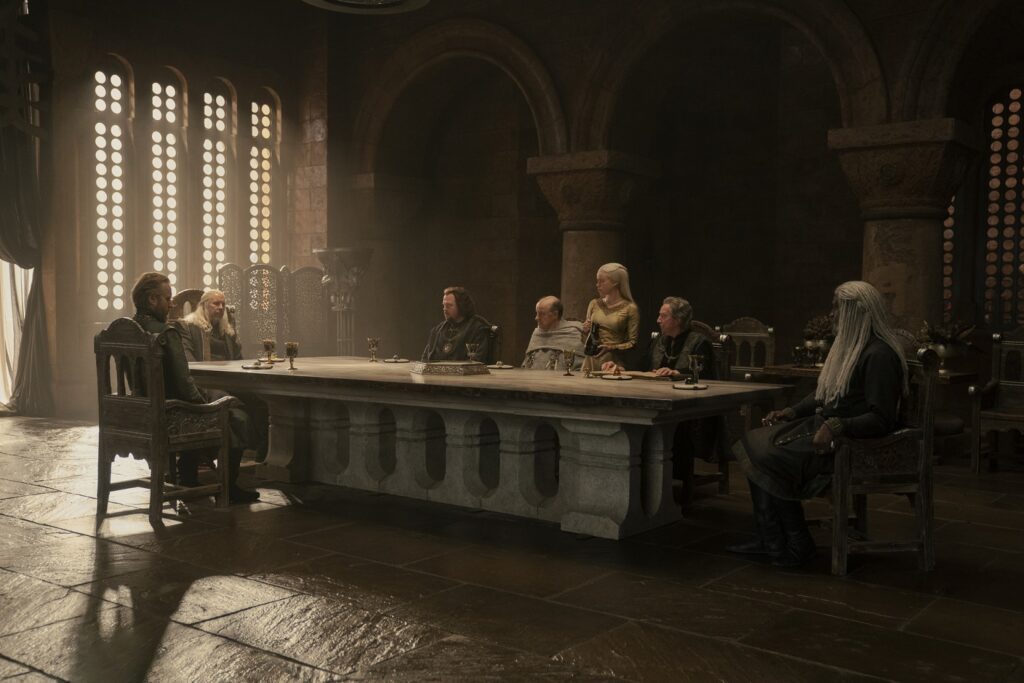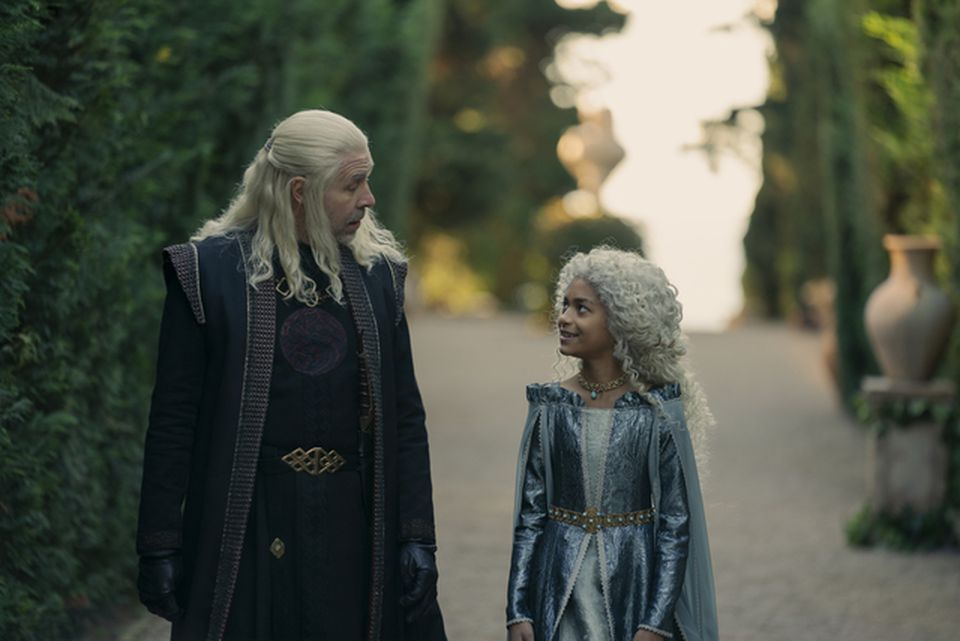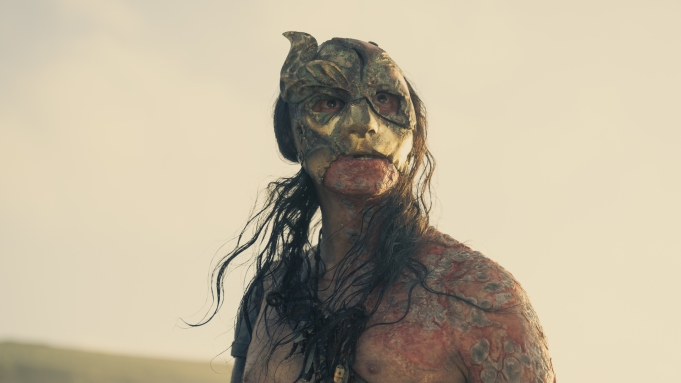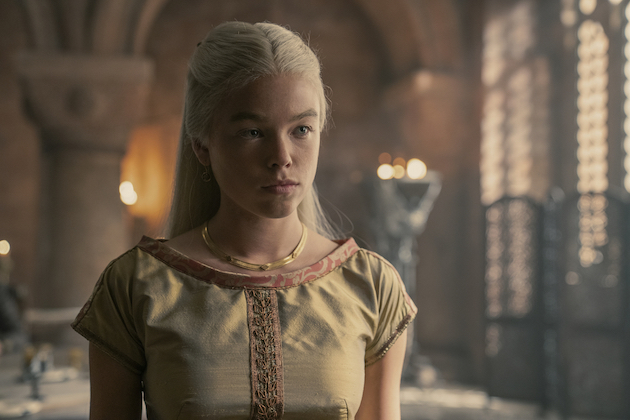After just two episodes, is House of the Dragon the best show on television?
Genre: Fantasy
Premise: Six months after the death of the queen during childbirth, King Viserys deals with growing trouble on several fronts.
About: In its second weekend, House of the Dragon’s ratings actually went UP 2%. That’s extremely good news, considering that its ratings were so high with the premiere (10 million viewers). Normally, people will tune in to the premiere out of curiosity and a portion will decide, ‘not for me.’ To retain everyone shows just how strong the show is, particularly its writing.
Writer of this episode: Ryan J. Condal
Details: 54 minutes

Game of Thrones reminds me a lot of Star Wars in that it built its stellar mythology from whole cloth and took the world by storm with it. But like all great things, the show had to end at some point. And end it did.
When new Game of Thrones shows were announced to be in development, you thought, what’s the point? They can’t possibly be as good as the OG. I certainly didn’t think any spinoff could live up to the original.
Yet isn’t that exactly where we are? Staring down the barrel of a show that’s not only a worthy successor to Game of Thrones, but maybe even better than it??
You know where my mind goes in all of this. JEALOUSY! Why do G.O.T. fans get such an amazing follow-up to their geek shrine while we Star Wars nuts are left with clumsy half-baked scripts cobbled together by second-rate screenwriters scraped off the spice mines of Kessel.
Or, in layman’s terms: WHEN THE HECK DO WE GET OUR STAR WARS VERSION OF HOUSE OF THE DRAGON???
I suppose never.
Which may be okay, since House of the Dragon is slowly creeping up to becoming the best show on television and, you know what? I have no issues switching allegiances. I just want to watch good television.
So in episode 2, six months have passed and King Viserys is feeling the pressure to remarry cause the dude needs to have more babies! Even though he’s made his daughter, Rhaenyra, his successor, the hope is that he can get a wife, belt out a boy, and that way they can have a man as the successor instead of a woman. Can’t have no lady running things around here.
Everyone is strategizing for this rare opportunity to lift themselves up on the power hierarchy and the two contenders are Lord Corlys’s 12 year old daughter, and daughter of the King’s right hand man, 15 year old Alicent. Corlys’s daughter is the front runner but the King shocks everyone by choosing Alicent, who it also happens is Rhaenyra’s best friend. Rhaenyra is none too pleased by this development.
 Lord Corlys’s daughter.
Lord Corlys’s daughter.
Meanwhile, the Targaryen’s control of the region is slipping. Some dude called the Crabfeeder, who feeds his captives to crabs, has taken over the Targaryen’s main shipping lanes, putting a strain on the kingdom’s coffers.
And let’s not forget about good old rabble-rouser, Daemon, who was so pissed off he didn’t win the succession title that he went off and created his own kingdom. If you can’t beat’em, leave’em. Recently, he’s stolen one of the Targaryen’s dragon eggs, a problem that must be remedied immediately, since Daemon with a dragon is the equivalent of handing nukes to Hitler.
 Crabfeeder?
Crabfeeder?
Things are heating up in Westeros!
As you know, I’m here for the screenwriting choices so let’s talk about them.
The major choice in the second episode was to jump forward six months. To the layman viewer, this is inconsequential. But to any screenwriter, they know this is a major creative decision. Most shows will make the storyline continuous as it’s much easier to manage.
I suspect that there are two main benefits to this choice. The first is that we needed time to pass after the queen’s death. Although we probably could’ve jumped right into the King remarrying, it makes more sense that he needed time to grieve.
But the far more obvious benefit is that they needed to introduce Daemon’s kingdom. If we would’ve moved the story along continuously, it would’ve taken all season to give Daemon a kingdom. This provides Viserys with an immediate threat, which is what you want in storytelling. You want there to be pressure bearing down on your protagonist from all angles.
It also looks like Viserys is going to have leprosy. His body is going to start falling apart (which is going to be gnarly and awesome) and that needs time to gestate. I loved the creepy little scene where he has to place his hand in maggots to eat away his rotting flesh.
What’s interesting is that the second episode basically makes the first episode a flashback. Unless they keep making giant jumps forward in time every episode, which I doubt. At some point, the story momentum you lose from a time jump becomes more detrimental than the narrative advantages you gain from a time jump.
It’s harder to do this sort of time-jumping in a feature. You can’t jump forward in time six months after one hour into a movie. I mean you can in specific instances. But, normally, you lose too much momentum. The main way movies are different from TV shows is urgency. Things need to happen RIGHT NOW in movies, which is why plots tend to move a lot quicker in features.
You don’t have that issue when telling a TV story, which allows you to make these bigger jumps in time if you so choose. Although I think this specific setting helps soften the impact of a time jump, which I’ll discuss later in the “What I Learned” section.
We talk a lot about pilot scripts on the site but we rarely talk about the screenwriting choices that go into a *second* episode. And this episode taught me that there is a key strategy you should be implementing in your second episodes which is thus: USE THEM TO SET UP YOUR SEASON’S BIG STORY THREADS.
This episode is setting up so many threads.
There are *plot* threads being set up: We have the crabfeeder issue. We have Daemon’s rogue kingdom. We have the king’s leprosy spreading. As well there are *character* threads being set up: Rhaenyra’s frayed friendship with Alicent due to her marrying her father. Lord Corlys’s weakening trust in Viserys. Vicerys inability to connect with his daughter.
Because the first episode must spend so much time introducing the characters and the world, it doesn’t have enough time to set up the season’s plot. So that’s what episode 2 is for. At least, in this series, that’s the case. But it was so successful that I would go so far as to say every TV writer should be doing this.
The only thing I’m worried about with this show is the writing of Rhaenyra. She’s not in the mix in any of the best scenes of the show. Granted, that’s somewhat due to her situation (being forced to wait in the wings). But it’s clear that the writers are struggling with her.
She has a scene where she’s picking a knight for a quest that, as far as I can tell, is inconsequential to the overall story. Then she has a talk with her friend, Alicent, in the candle room, that leaves next to zero impression on the show.
In her most memorable scene, Lord Corlys’s wife bullies her, telling her she’ll be an afterthought in the kingdom when all is said and done. But the character who comes out more memorable in that scene is the wife, not Rhaenyra.
Even her dragon moment is muted by the fact that she’s overshadowed by the dragon!
What’s sort of saved the writing of Rhaenyra so far is that the actress who plays her has a very interesting face. You’re always pulled in whenever you get a close-up of her. But it’s not due to the writing. It’s due to the actress.

If this show is going to be truly great moving forward, they need to figure out that character. And fast!
But it’s a minor quibble because so many of the other characters work and the season looks like it’s going to be very juicy. And not that disgusting kombucha juice either. I’m talking fresh-squeezed Westeros orange juice, baby. The creme de la juicy creme.
[ ] What the hell did I just watch?
[ ] wasn’t for me
[ ] worth the stream
[x] impressive
[ ] genius
What I learned: Period pieces are more forgiving of large time jumps. Time passing is a common theme when dealing with stories set in the far off past. So audiences are accepting of those time jumps. But I don’t think you can set a show in present day and get away with a six month time jump in episode 2. I just don’t think the audience would allow it.

